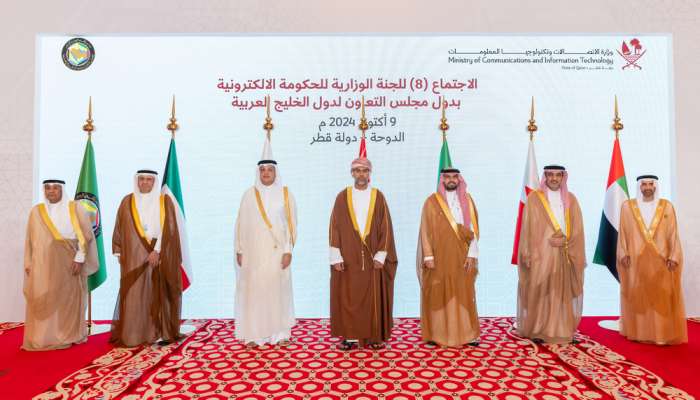The 8th meeting of the GCC Ministerial Committee for e-Government took place in Doha, Qatar on Wednesday, with Oman being represented by the Ministry of Transport, Communications and Information Technology. The delegation was headed by Dr. Ali Amer Al Shidhani, Undersecretary of the Ministry of Transport, Communications and Information Technology for Communications and Information Technology. During the meeting, a guiding strategy for e-government in GCC states was approved, along with reports from the e-government executive committee and working groups. The Ministers also endorsed a unified framework for digital access in member states, aiming to streamline digital services across the region.
One of the key discussions at the meeting was the criteria for the GCC E-Government Award, recognizing excellence in digital government initiatives. The Ministers also considered measures for the distribution of a booklet titled “Digital Landscape in the GCC”, aimed at providing insights into the digital transformation efforts in the region. These discussions highlight the commitment of GCC states to enhancing their e-government services and ensuring digital access for all citizens. By sharing best practices and learning from each other’s experiences, member states can work towards a more efficient and inclusive digital government ecosystem.
The participation of Oman in the 8th meeting of the GCC Ministerial Committee for e-Government demonstrates the country’s dedication to advancing its digital government initiatives. With Dr. Ali Amer Al Shidhani leading the delegation, Oman was able to contribute to the discussions on the guiding strategy for e-government in GCC states and the unified framework for digital access. By engaging in these regional discussions, Oman can gain valuable insights and knowledge that can be applied to strengthen its own e-government services and enhance digital inclusion for its citizens.
The approval of a guiding strategy for e-government in GCC states signifies a step towards greater collaboration and harmonization of digital services across the region. By establishing a common framework, member states can work towards interoperable and seamless digital solutions that benefit citizens and businesses alike. The endorsement of a unified framework for digital access further reinforces the commitment of GCC states to ensuring that all citizens have equal opportunities to access digital services and information, regardless of their location or background.
The criteria for the GCC E-Government Award highlight the importance of recognizing and incentivizing excellence in digital government initiatives. By setting clear benchmarks and standards for e-government projects, member states can inspire innovation and continuous improvement in their digital services. The publication of the booklet “Digital Landscape in the GCC” will serve as a valuable resource for sharing knowledge and experiences in digital transformation, fostering collaboration and learning among member states. This collective effort to enhance digital government capabilities in the region will ultimately lead to better services and outcomes for citizens.
In conclusion, the 8th meeting of the GCC Ministerial Committee for e-Government in Doha was a significant forum for discussions on advancing digital government initiatives in the region. Oman’s participation and contributions to the meeting reflect its commitment to enhancing its e-government services and digital inclusion efforts. By collaborating with other GCC states, Oman and its counterparts can work towards a more integrated and efficient digital government ecosystem, ultimately benefiting citizens and businesses across the region. The outcomes of the meeting, including the approval of a guiding strategy, the endorsement of a unified framework, and the discussions on the GCC E-Government Award, will further drive progress towards digital transformation and innovation in the GCC states.








